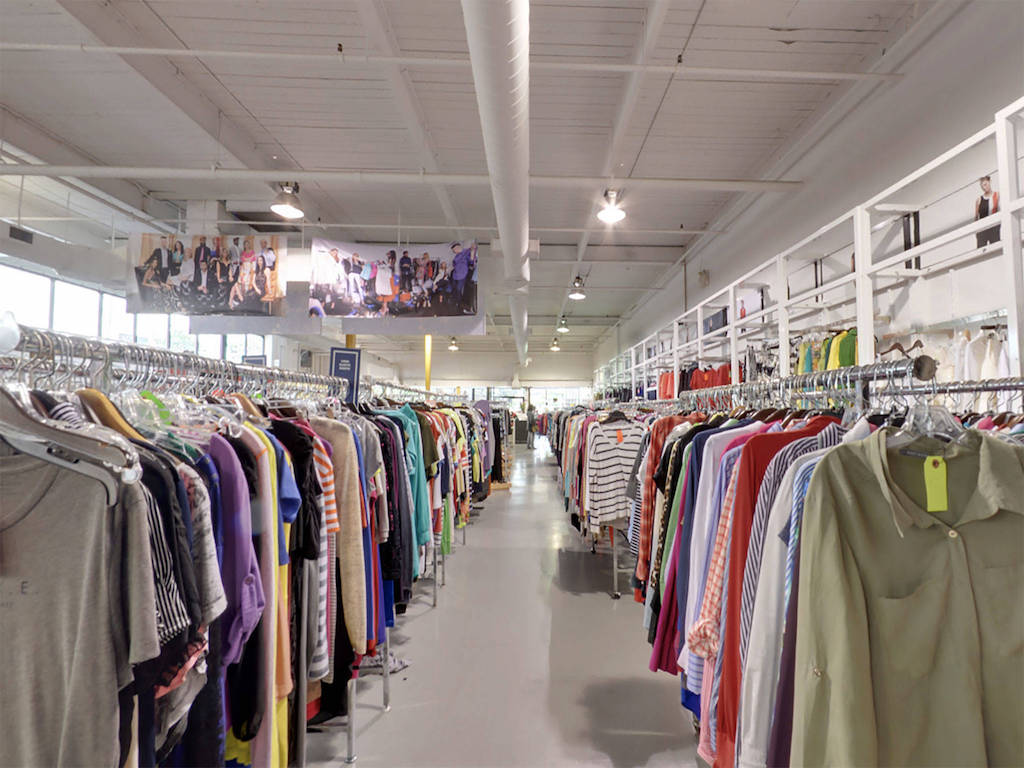4 Mins Read
Global charity Oxfam has recently launched their #SecondHandSeptember campaign, calling on people to join the pledge to say no to new clothing for 30 days. Having been reusing and reselling clothes since 1948, the NGO has declared that secondhand is the answer to sustainable fashion, helping to sound the alarm on the environmental impact of the mainstream fashion industry. As consumers become increasingly attuned to the footprint left behind by their consumption habits, the global fashion market is evolving and moving towards about circularity with a focus on brands made from upcycled materials, resale e-commerce and renting platforms.
Proving that second hand fashion will be a mainstay, luxury resale online consignment shop The RealReal raised a whopping US$300 million, going public in June on the Nasdaq Global Select Market under the ticker symbol REAL. Prior to their IPO, the startup raised more than US$350 million in funding, and saw their revenue soar up 50% within the first quarter of 2019 compared to the same period in 2018. A recent report predicts that the second hand sector will reach US$ 51 billion within 5 years, and will overtake the fashion market by 2028, numbers that have investors salivating to get a piece of the (preloved) pie.
Mainstream Fashion Plagued By Waste
The global fashion industry is a massive waste producer and carbon emitter. Currently accountable for over 10% of global carbon emissions, the industry is projected to take over 24% of the global carbon budget by 2050 due to increasing demand, according to the United Nations FCCC. Not only does manufacturing common textiles such as polyester use up colossal amounts of oil, the production process also often uses toxic dyes and bleaches that pollutes waterways and degrades topsoil.
In addition, deadstock and offcuts as well as end-of-life clothing are left to rot in landfills. To put this perspective, we are currently seeing one garbage truck of textiles incinerated or dumped in landfills every single second. This is a huge problem for Asia in particular, where over half of the world’s clothing is manufactured, and where new-to-middle-class consumers are increasingly demanding more fast fashion.
Younger Consumer Driving Second Hand Demand Globally
Drastic changes have to be made if we are to make fashion sustainable, and one of the answers is second hand clothing, which is set to grow to 1.5 times the size of the fast fashion market within the next 10 years. Realising the environmental impact of mainstream fashion, increasingly sustainability-oriented shoppers are looking to buy more preloved items.
The sea change towards a more circular, second hand fashion economy is a reflection of the increased consumer focus on sustainability, especially amongst younger buyers in Asia and globally who are attracted to purpose-driven businesses. According to a BCG-Altagamma report, over 50% of Gen-Zs have bought or sold second hand clothing.
The Chinese rental, sharing and resale fashion market economy is also booming, with the latest WEF report predicting the industry will take over 20% of the country’s GDP by 2025.
Resale Platforms Powered By AI Offer Increased Efficiency
Driving the second hand fashion trade is AI-forward online consignment and thrift store platform thredUP. Initially launched in 2009 as a men’s shirt-swapping company, thredUP now dominates the budget to mid range resale market in the United States, using artificial intelligence provided by Vue.ai, which recognises attributes that define wear-and-tear and image recognition in order to assign the resale value of items at an incredible scale.
Last year, the company upcycled 576,000 fast fashion items and represented 35,000 brands, with over 100 million items processed. They also use AI to predict fashion trends and personalise items for customers through a buyer-history algorithm, which enables the platform to offer an individualised box service of 10 select garments.
Money is pouring into sustainable fashion innovation right here in Asia, with the 2019 Hong Kong Fashion Summit seeing the launch of a US$60 million Good Fashion Fund to invest in sustainable manufacturers in India, Bangladesh and Vietnam.
Traditional Retailers Look To Aftercare To Engage Customers
While they are still realing from the onset of online retail, department stores globally are now having to adapt and second hand is a key solution. With more people embracing recycled fashion, retailers in the United States and the United Kingdom are responding by adding in second hand experiences for customers in-store.
Upmarket retail giant Harvey Nichols has recently partnered up with reconditioning company The Restory to launch a luxury goods after-care programme, which invites customers to obtain a discount by swapping in their shoes and bags within 18 months of purchase to be refurbished and resold.
Popular e-commerce company Farfetch has also unveiled their “Second Life” initiative, which gives shoppers credit in exchange for second hand designer apparel and accessories.
Even Selfridges have installed drop-off points for items to be refurbished by The Restory, proving that in order to avoid another nail in the coffin, fashion companies have to offer more sustainable options to consumers.
Conscious Fashion: Uptick in Used Clothing Bins At Asian Retailers
Companies in Asia are also developing similar recycling systems, with The Billie System launching a collaboration with sportswear brand PUMA across select Hong Kong stores to collect unwanted fashion items to be weaved into recycled textiles without producing waste or contaminants or using up water and both Zara and H&M offering used clothes collection bins in-store.
Commenting on the trend of fashion circularity, co-founder and CEO of The Restory Vanessa Jacobs said: “The rental and resale market allows more transactions and keeps the supply on the market desirable for longer. Aftercare is the engine that powers the circular economy.”
Lead image courtesy of BlogTo.




